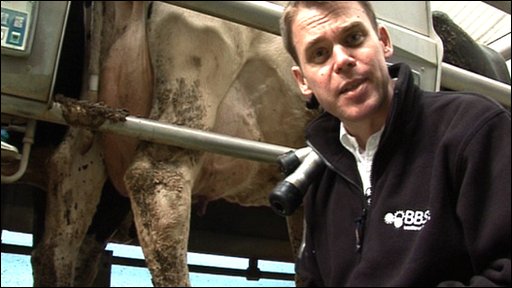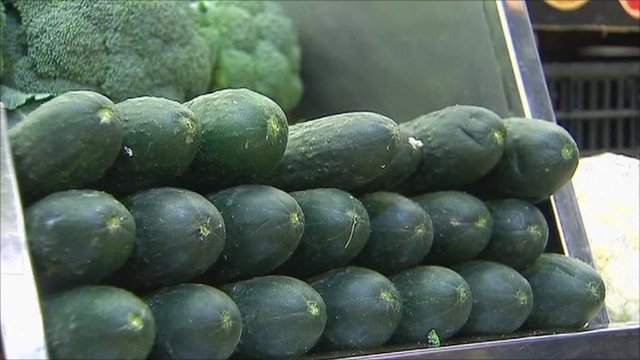Geek
Chief Minister (5k+ posts)
A multi-drug resistant superbug well-known in India and Pakistan has made its way to the Greater Toronto Area, a study finds.
Two people in the GTA tested positive for the stubborn antibiotic resistant bacteria called New Delhi metallo-beta-lactamase-1 (NDM-1), which is wrecking havoc in India and Pakistan.
One of the two GTA people with NDM-1 bug had not traveled outside of southwestern Ontario in more than a decade and no source could be identified for the superbug. The 86-year-old man caught the bug in October 2010. None of the patients relatives had recently travelled to India or Pakistan.
In Canada, previous cases were linked only by travelling overseas. This is the first documented case where travelling to the Indian-sub-continent was not necessary in catching the bug.
To the best of our knowledge, this is the first reported instance in which an NDM-1-producing organism was locally acquired in Canada, Dr. Susan Poutanen, a microbiologist and infectious disease physician at Mount Sinai Hospital and University Health Network, said.
Its not a cause for alarm to Canadians at large. Theres only been a handful of cases ... this is a reminder to health care institutions to take appropriate infection control measures, Poutanen added.
In the second case, the GTA patient flew to India to have a medical procedure performed. The 71-year-old GTA woman was hospitalized for 10 days in New Delhi, India, where she acquired the superbug in September 2010.
Both patients tested positive for NDM-1, but were not infected with the bacteria, meaning the bacteria colonized in the patients gut and was found in the patients urine, but did not cause harm to the patients.
Both patients continue to be monitored in case the bacteria infects their bladders.
Poutanen said there are few treatment options and limited antibiotics which work against NDM-1 because the bug is so resistant against many antibiotics.
In cases where patients are infected with NDM-1, extensive infection control precautions must be taken, including isolation in single rooms and enhanced environmental cleaning.
Poutanen said its difficult for laboratories to diagnose the bug and it can be missed if special screening is not performed to detect NDM-1.
When looking for the organism, its tricky to find, said Poutanen, who has developed a new method to detect NDM-1.
The study is published in the Canadian Medical Association Journal.
http://www.torontosun.com/2011/05/30/superbug-spreads-to-gta
Two people in the GTA tested positive for the stubborn antibiotic resistant bacteria called New Delhi metallo-beta-lactamase-1 (NDM-1), which is wrecking havoc in India and Pakistan.
One of the two GTA people with NDM-1 bug had not traveled outside of southwestern Ontario in more than a decade and no source could be identified for the superbug. The 86-year-old man caught the bug in October 2010. None of the patients relatives had recently travelled to India or Pakistan.
In Canada, previous cases were linked only by travelling overseas. This is the first documented case where travelling to the Indian-sub-continent was not necessary in catching the bug.
To the best of our knowledge, this is the first reported instance in which an NDM-1-producing organism was locally acquired in Canada, Dr. Susan Poutanen, a microbiologist and infectious disease physician at Mount Sinai Hospital and University Health Network, said.
Its not a cause for alarm to Canadians at large. Theres only been a handful of cases ... this is a reminder to health care institutions to take appropriate infection control measures, Poutanen added.
In the second case, the GTA patient flew to India to have a medical procedure performed. The 71-year-old GTA woman was hospitalized for 10 days in New Delhi, India, where she acquired the superbug in September 2010.
Both patients tested positive for NDM-1, but were not infected with the bacteria, meaning the bacteria colonized in the patients gut and was found in the patients urine, but did not cause harm to the patients.
Both patients continue to be monitored in case the bacteria infects their bladders.
Poutanen said there are few treatment options and limited antibiotics which work against NDM-1 because the bug is so resistant against many antibiotics.
In cases where patients are infected with NDM-1, extensive infection control precautions must be taken, including isolation in single rooms and enhanced environmental cleaning.
Poutanen said its difficult for laboratories to diagnose the bug and it can be missed if special screening is not performed to detect NDM-1.
When looking for the organism, its tricky to find, said Poutanen, who has developed a new method to detect NDM-1.
The study is published in the Canadian Medical Association Journal.
http://www.torontosun.com/2011/05/30/superbug-spreads-to-gta





























